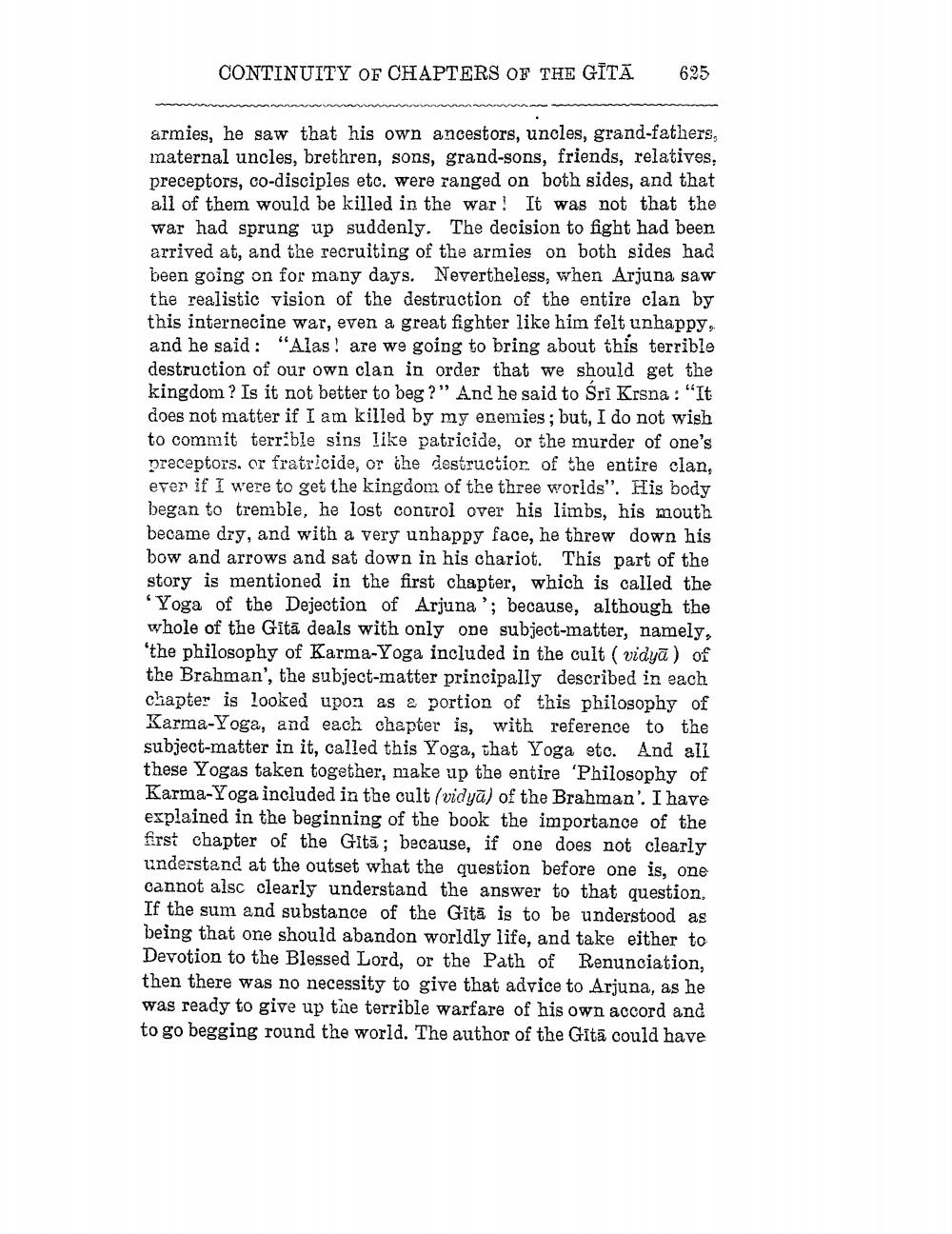________________
CONTINUITY OF CHAPTERS OF THE GĪTĀ.
625
armies, he saw that his own ancestors, uncles, grand-fathers, maternal uncles, brethren, sons, grand-sons, friends, relatives, preceptors, co-disciples etc. were ranged on both sides, and that all of them would be killed in the war! It was not that the war had sprung up suddenly. The decision to fight had been arrived at, and the recruiting of the armies on both sides had been going on for many days. Nevertheless, when Arjuna saw the realistic vision of the destruction of the entire clan by this internecine war, even a great fighter like him felt unhappy, and he said: "Alas! are we going to bring about this terrible destruction of our own clan in order that we should get the kingdom ? Is it not better to beg?" And he said to Sri Krsna: "It does not matter if I am killed by my enemies; but, I do not wish to commit terrible sins like patricide, or the murder of one's preceptors, or fratricide, or the destruction of the entire clan, even if I were to get the kingdom of the three worlds". His body began to tremble, he lost control over his limbs, his mouth became dry, and with a very unhappy face, he threw down his bow and arrows and sat down in his chariot. This part of the story is mentioned in the first chapter, which is called the 'Yoga of the Dejection of Arjuna'; because, although the whole of the Gītā deals with only one subject-matter, namely, 'the philosophy of Karma-Yoga included in the cult (vidyā) of the Brahman', the subject matter principally described in each chapter is looked upon as a portion of this philosophy of Karma-Yoga, and each chapter is, with reference to the subject matter in it, called this Yoga, that Yoga etc. And all these Yogas taken together, make up the entire 'Philosophy of Karma-Yoga included in the cult (vidyā) of the Brahman'. I have explained in the beginning of the book the importance of the first chapter of the Gită; because, if one does not clearly understand at the outset what the question before one is, one cannot alsс clearly understand the answer to that question. If the sum and substance of the Gītā is to be understood as being that one should abandon worldly life, and take either to Devotion to the Blessed Lord, or the Path of Renunciation, then there was no necessity to give that advice to Arjuna, as he was ready to give up the terrible warfare of his own accord and to go begging round the world. The author of the Gitā could have




